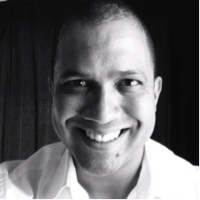
Help for Our Prayer Lives
I suspect that most Christians find it difficult to pray. It won’t surprise me to hear that many Christians have shallow prayer lives. Personally, I find prayer hard. Bible reading by comparison is for me far easier. Being constant in prayer requires discipline, focus and no small measure of planning. And even then its not easy.
What is the remedy for this anemic spiritual state? How should pastors help their people in what most know to be an essential disciple?
“Pray until you pray,” is good counsel. Prayer is indeed a kind of wrestling with God, and it requires us pushing through those initial moments of awkwardness before the Lord. Another piece of good advice is this: “Pray with your Bible open.” Jesus taught us are pray “not my will, but yours be done” (Lk 22:42). Lets also remember God’s will is primarily revealed in the Scriptures. Therefore it is the wise man that seeks his Lord in prayer – with an open Bible.
The Congregational Prayer Meeting
There is another source of help for our prayer lives. It is the congregational prayer meeting. The congregational prayer meeting is another source of help for our prayer lives. Click To Tweet
No doubt, many Christians can easily recount cringe-worthy moments in church prayer meetings. I certainly can! But by God’s kind providence, I was exposed to church prayer meetings that were warm, kingdom-focused and well attended by the members. As a single man, having just finished university in South Africa, I was a member of Dunstable Baptist Church in England. It was at this small, English church where I was first introduced to the power of congregational prayer. I regularly came away from those times of prayer with my own soul enriched and my affections drawn toward those saints. Later, as a married man, I was a member of Capitol Hill Baptist Church in Washington, DC. In God’s grace, many habits about that American congregation have stayed with me, not least the weekly Sunday evening prayer meetings.
Christian Prayer As A Community Project?
Nonetheless, I want you to see the emphasis the New Testament places on congregational prayer. Lets consider several passages on prayer which together present a compelling case for the prayer meeting.
First, observe how Paul regularly call for groups of people to pray: “Brothers, pray for us…” (1 Thess 5:25); “At the same time, pray also for us, …” (Col 4:3); and “I desire then that in every place the men should pray…” (1 Tim 2:8). It is significant that the first two references are to local churches, for this suggests that Paul is asking for the church as a whole to pray for him.
Second, when Paul speaks of his prayers for others, he often speaks of praying with others. Colossians 1:3: “We always that God…when we pray…” 1 Thessalonians 3:10: “…as we pray most earnestly…” 2 Thessalonians 1:11: “to this end we always pray…”
At this point, some may argue that Paul is merely teaching us that all Christians should pray, not necessarily that all Christians should pray together. Perhaps. But consider, third, the teaching of Jesus in Matthew 6:9-15. Jesus says, “Pray then like this: “Our Father in heaven…” D.A. Carson is helpful here. He observes, “Christians are not to pray in splendid isolation, and not to construe spirituality in terms of rugged individualism which stamps so much Western thought…. There is, no doubt, a place for our praying as an individual to God; but the general pattern of our praying must be broader than that.”[1]
Finally, take note of the example we have of the early disciples at the beginning of their ministry together. Most know the book of Acts to be crammed with powerful displays of God’s saving work in and through the early Christians, especially the apostles. It is therefore no small thing I believe that this work starts in a congregational prayer meeting. Just after receiving their instructions from the resurrected Jesus, the apostles return to Jerusalem (Acts 1:12). What happens next is surely significant. Not only do these early disciples give themselves to earnest, regular prayer, they also regularly gathered “with one accord… devoting themselves to prayer, together with the women and Mary the mother of Jesus, and his brothers.” As the early disciples prepare to minister the Gospel of Jesus Christ, their first order of business is to gather together for prayer. Surely they are a model for us to follow, especially when we consider the aforementioned teaching on prayer: that Paul was known to pray with others, that Christians were instructed to pray as groups, and that Jesus taught us to pray “our Father…”
A Practical Word to Fellow-Pastors
All this begs the question: “how does one practically gather the church as a whole to pray?” Here are several quick suggestions for the pastor.
- Begin holding a bi-monthly prayer meeting on Sunday evenings. It may be too much to ask the congregation to commit every Sunday evening to meeting together. If that is true, start small.
- If you do gather the church on Sunday evening for another teaching slot, or you perhaps you offer a midweek opportunity for more teaching – let me suggest you convert that into a congregational prayer meeting. I can think of two reasons for this. First, the apostles saw prayer are crucial to their work, summarizing their ministry philosophy with these words “But we will devote ourselves to prayer and to the ministry of the word” (Acts 6:4). Second, when elders and pastors call the church to gather multiples times in the week for more teaching, we run the risk of communicating to them that prayer isn’t really that important.
- Give specific direction to the members on how they should pray. Bring a list of Gospel-focused prayer needs and ask specific members to pray for these needs. Don’t assume your people will remember what to pray for. Also don’t assume they will frame their requests with gospel priorities.
- Encourage members to share prayer requests and testimonies – but reserve the right to vet these items. As the pastor you should strive to expose the body only to that which is edifying and helpful to the whole assembly (1 Cor 14:12). Aim to fill the prayer list on these occasions with that which items that reflect the priorities of the apostle Paul. Carson’s book on this subject is excellent: Praying with Paul: A Call for Spiritual Reformation.
- Call on mature Christians to lead the group in prayer. Hearing the prayers of mature Christians is instructive for the rest of the body.
- Push through the first few months of sloppy prayer times. Those early days may contain not a few cringe-worthy moments. But God is faithful. Continue to lead your people to greater prayerfulness. Gently correct where necessary. But be patient! And don’t be discouraged when the first twenty prayer meetings reveal the shallow spiritual state of many. It is God’s will that we pray without ceasing, and part of this means being devoted as church together to prayer.
Endnotes
[1] D.A. Carson, Sermon on the Mount, an exposition of Matthew 5-7 (1978), 68.

